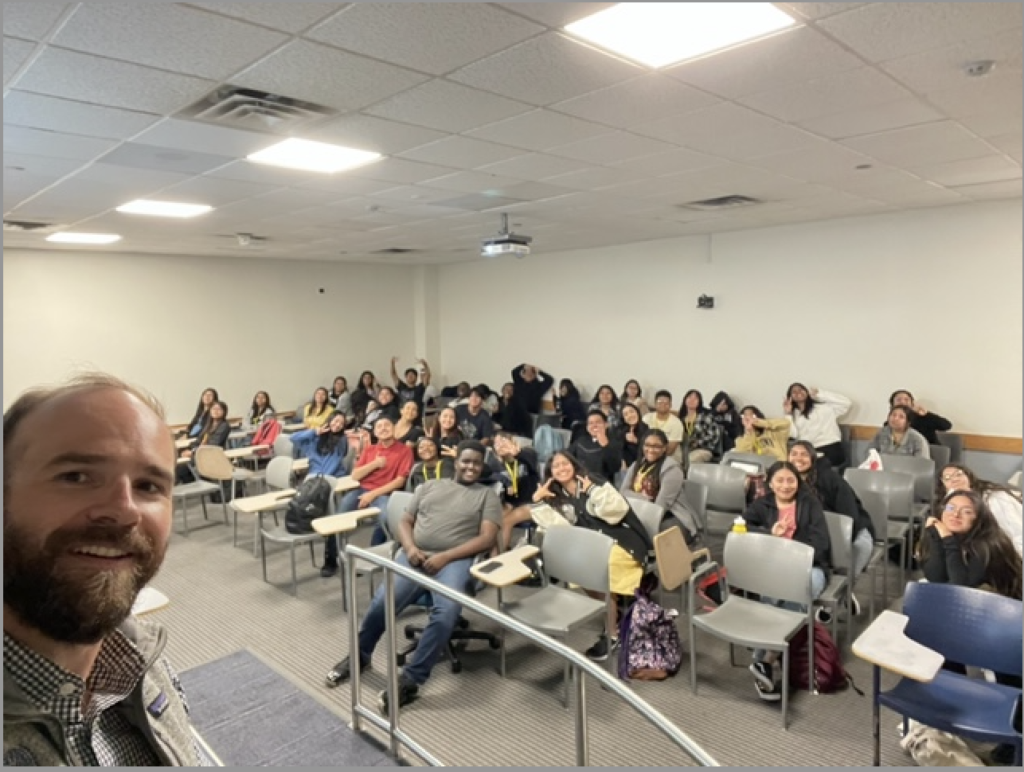On Monday, July 31, Georgetown will honor the feast day of its patron saint, St. Ignatius of Loyola, founder of the Jesuits, with a mass and a reception to follow in Dahlgren Quad on the Hilltop. You can find more event details at this University site.
Over the years, Mission in Motion has narrated the significance of the story of St. Ignatius in many ways, including coverage of the Ignatian Year, a more than year-long celebration of the 500th anniversary of the saint’s transformative conversion after suffering from cannonball-induced wounds. The unique events and testimonials to the meaning of Ignatius’ life presented a welcome point of departure for greater reflection across Georgetown about the relevance of the Jesuit founder in our present age.
At SCS, the life and example of St. Ignatius uniquely address the life experience, hopes, and dreams of our student population. There are four elements of Ignatius’ biography that I would like to call attention to in light of the characteristics of adult learners engaged in professional and continuing education.
First, St. Ignatius was himself an adult learner. After his conversion to a deeply purpose-driven life anchored in prayer and love of God and others, Ignatius decided that realizing his earthly mission and that of the Jesuit order required educational credentials. This insight speaks to the motivations that bring so many early-, mid-, and late-career students into programs at SCS. Acquiring the skills and knowledge recognized by professional bodies and academic communities makes it possible to accomplish great deeds in the world. Ignatius was humble in this recognition of the need for formal study, electing in his adult years to return to school with much younger students. The Jesuits themselves inherited this commitment to adult education, innovating the Church’s style of preaching and teaching by hosting sacred lectures (like the ones that Georgetown still sponsors) intended for adults with busy lives.
Second, St. Ignatius was a military-connected student. To put an even finer point on this, Ignatius was actually a wounded warrior, having suffered the physical and emotional wounds of combat. SCS is ever proud to be a welcoming community for veterans and counts many military-connected students amongst its students, faculty, and staff. According to the 2021-2022 SCS Dean’s Report, 250 degree-seeking students are military students. More than coursework, these students have access to a comprehensive set of resources provided by Georgetown’s Military and Veterans’ Resource Center. It is fair to say that Ignatius understood the challenges of military life and many of the insights that he brought into his leadership and administration of the Jesuits reflect these lessons.
Third, St. Ignatius used technological innovation as part of his leadership strategy. During the COVID-19 pandemic, SCS utilized a motif from early Jesuit history, “A Community in Dispersion,” to describe the possibility of using technology to maintain the unity of a globally dispersed community. There is analogy in the use of online education to foster common bonds despite the physical distance of students and the way that St. Ignatius pioneered the hand-written letter, a technology of his time period, as a way of keeping Jesuits unified throughout the world. SCS has made great strides in recent years in the development of high-quality online education programs. With the help of creative instructional designers, subject matter experts, and a coordinated strategy to incorporate the Spirit of Georgetown into online courses, SCS online programs are renewing a 500-year-old tradition in ways that address contemporary education needs.
And finally, St. Ignatius proved that busy adults can still lead contemplative lives. In this way, Ignatius was an exemplar for Contemplation in Action, a cherished value at SCS because of the reality that so many of our students are juggling competing personal and professional obligations in pursuit of their Georgetown educations. The style of spirituality that St. Ignatius encouraged has made it possible to simultaneously reflect on the meaning of daily experience (through tools like the examen of consciousness) and generously and vigorously act in the world in the service of the common good. In so many ways, I recognize the spirit of the Ignatian biography when I observe committed, ambitious, and dedicated students descending on SCS classrooms at the end of a long workday. These same students also find time to contemplate, attending retreats and committing to other spiritual practices.
St. Ignatius is a universally beloved figure in Jesuit education. And while all parts of this global enterprise can make claim to St. Ignatius and his unique contributions, there is a special way that this man resonates with the adult learners who comprise Georgetown’s School of Continuing Studies. Happy feast day!







